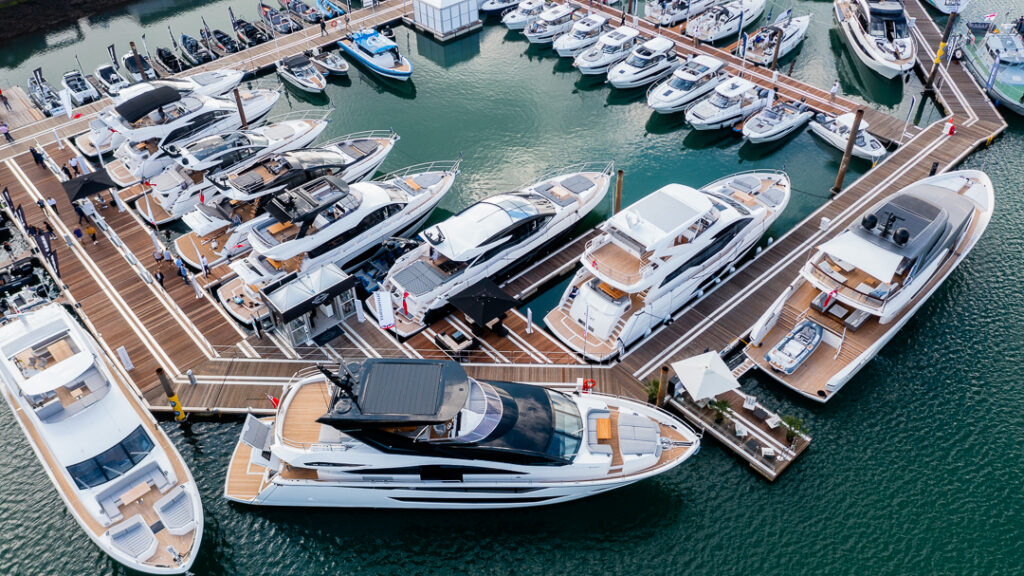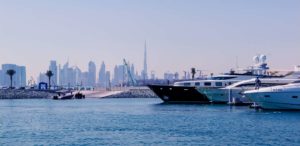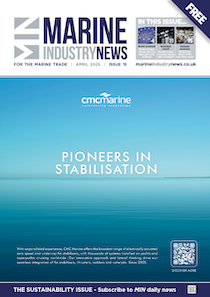New chair of the GMBA on attracting Gen Z to the marine industry

Veda Pretorius, new chair of the GMBA, explores how the industry can make leisure marine an attractive career choice for Gen Z.
The recreational marine industry has seen fairly consistent growth over the past four years, but this has also put pressure on an industry already struggling to meet the demand for skilled labour. At Global Marine Business Association (GMBA), we have received feedback from customers worldwide, spanning countries including Australia, New Zealand, South Africa, Europe, and the USA facing this skilled labour shortage.

It is the most pressing issue facing our industry, and is impacting all sectors from superyachts and the marina industry to small craft construction. It is therefore paramount the industry addresses the market challenge and appeals to young people.
Pictured left: Veda Pretorius
It’s a common refrain to hear previous generations say, “When I was young…” and talk about the hardships they faced. And to some extent, they’re right. Each generation faces its own significant challenges. For earlier generations in our industry, it can be difficult to keep up with the rapid pace of change and the adoption of new technologies but to attract and retain talent in the marine sector, we must understand and respect the culture and expectations of Gen Z.
Gen Z is known for being techsavvy and desiring seamless digital experiences. To appeal to them, the marine industry must leverage digital recruitment platforms and social media and showcase the innovative and technologically advanced aspects of the marine industry. We should also highlight how technology is transforming the sector. By demonstrating the advancements in shipbuilding, logistics, sustainability and electrification, we can showcase the true dynamism of the marine sector.
Another important aspect for Gen Z is finding purpose-driven work that aligns with their values and contributes to a larger cause. Companies need to address their ethics, sustainability measures and demonstrate where they are part of the environmental and wider conversation.
Companies can highlight their impact on environmental sustainability, conservation efforts, and global trade. By showcasing initiatives like green shipping practices, renewable energy integration, and efforts to reduce carbon emissions, we can demonstrate the industry’s commitment to making a positive difference. As continuous learning and growth are key for Gen Z candidates, promoting the opportunities for skills development, professional certifications, and career advancement within the marine sector will help garner attention. Sharing success stories of young professionals who have rapidly advanced their careers through mentorship programmes can help inspire and motivate others.
Companies including Sunseeker UK and Riviera have excelled in their approach to attracting young talent. Sunseeker’s apprenticeship programme and Riviera’s collaboration with schools to generate interest in the industry before graduation serve as excellent models. Similarly, in South Africa, where boatbuilding training facilities are limited, companies including Robertson and Caine, Southern Wind Shipyards and Two Oceans Marine have all implemented in-house training programmes.

The marine sector needs to innovate, not just in design and sustainability, but also in human resources. One potential idea for the marine manufacturing sector is the creation of a global ‘boatbuilding passport’. Since the boating industry is international, under this concept young people could have the opportunity to work in different countries, advancing their careers while experiencing different cultures. The structured programme could help address the boatbuilding skills shortage globally and be driven by marine industry associations and influential firms with the ability to lobby governments effectively. Flexibility and work-life balance are also highly valued by Gen Z.
While the marine industry, especially just-in-time manufacturing, can be demanding and time-sensitive, we can highlight aspects like remote work options, flexible scheduling, and employee wellness programmes. Spending time on a yacht you worked on, even if it is only for sea trials, is also hugely satisfying and also helps make all the long hours worthwhile.
By implementing new strategies and considering innovative approaches, we can make the recreational marine industry an appealing career choice for Gen Z and address the labour shortage, ensuring a bright future for the industry across the board.











That’s a brilliant suggestion. The shortage of marine skills is a worldwide issue. I’m currently residing in Thailand, and we’re experiencing a significant shortage of skilled workers here as well. It’s important to recognize that the assumption that low-cost countries would automatically have a larger labour pool is incorrect.
However, what we can observe is the need for a new approach to education. YouTube has emerged as a prominent educational platform globally, and it’s time for us to adapt our teaching methods and educational platforms to this changing landscape.